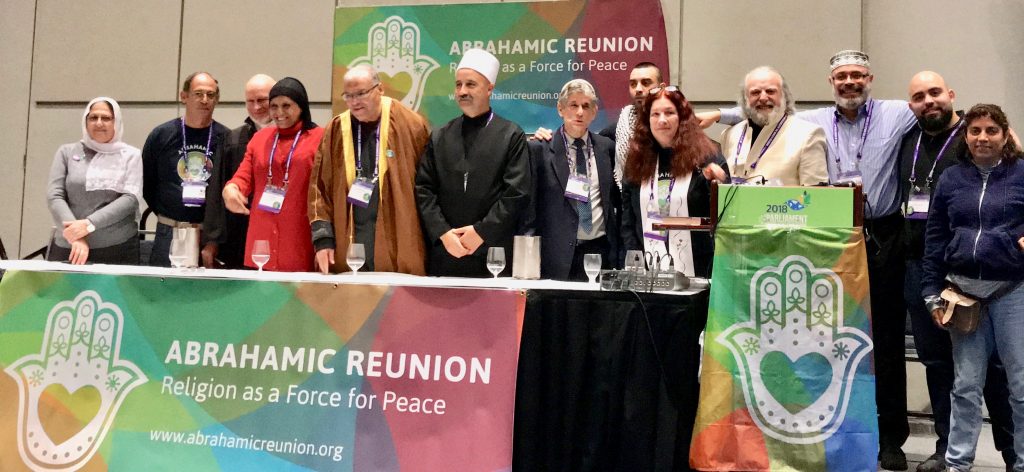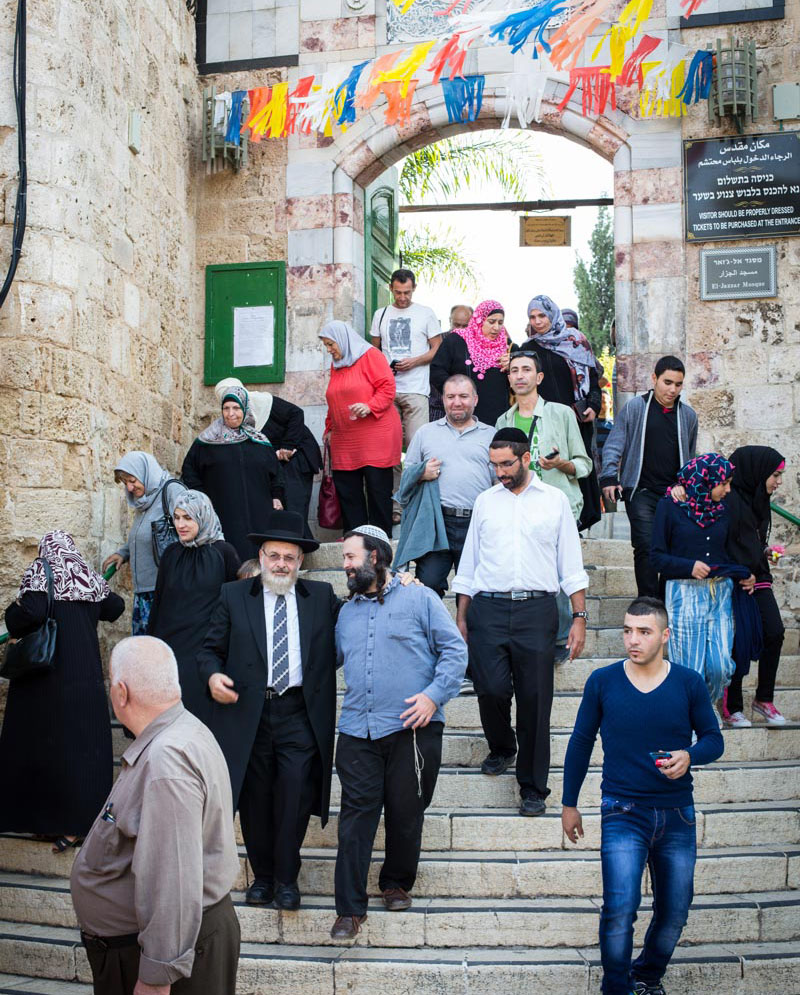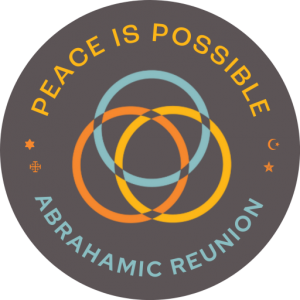The Abrahamic Reunion, founded in 2004, is a bottom-up grassroots organization designed to overcome the problem of segregation and separation in Israel and Palestine by bringing together small to large groups of people from the four major religions to spend time together, work together, study together, and create an atmosphere of trust and understanding. The basic premise is that religion has been used to divide people in the Holy Land and it can also be used as a force to bring people together while still respecting divergent points of view and cultures. The attempt to bring a political solution without having the support of the people has not worked for 70 years and the Abrahamic Reunion, recognizing this, has removed itself from any political posturing and consciously uses the interaction of women, young people, students, and religious leaders top develop a network of understanding and to train people in conflict resolution and interfaith dialogue.

What is the problem and how does the AR specifically overcome the issues at hand?
There’s been a history of segregation of the Jewish communities, religious and secular, from the Arab Palestinian and Arab Israeli communities. Villages and sections of cities are often populated by one particular religion or even aspect of that religion, which is self-segregated by choice from “the other”. For example, there can be a Muslim village in Israel, two miles away from a Jewish village, and there is absolutely no interaction, communication, or any program which would promote understanding.
The AR has continually, for over 15 years, realized that bringing people together for a day or even two days, and having people eat together, study their religious texts, culture, and customs with each other, and get to know each other in an atmosphere that is free from fear, creates a different attitude and a renewed hope for peace.
Who we bring together
The AR’s participants are families, women, young people, and religious leaders. Until the end of 2018, the AR brought together hundreds of Israelis and Palestinians, however as of late we have been unable to secure permits for Palestinians to enter Israel, due to the prevailing political climate. Because of this we have developed strong, separate but coordinated organizations and networks of peacebuilders operating within Palestinian and Israeli societies.
Where we’ve had success
In villages, towns, and cities across Israel and Palestine, the AR has brought Jews into Mosques, Muslims into Synagogues, Christians into Druze shrines, and Druze into Churches. Since 2006 the AR has held a yearly multi-faith Ramdan Iftar Dinner, bringing together 100-200 people each year to break bread in solidarity and peace, and since 2018 the AR has held three Peace Summits bringing together hundreds. Through the AR’s peacemakers, Jewish teachers are now working in Arab schools and vice versa. All of these efforts break down the walls of separation that keep apart the children of Abraham in the Holy Land.
What we could do if we scale up
With a larger budget the AR would increase programs in Palestine and Israel, hire more staff, and would implement training programs for younger peace builders in conflict resolution and peacemaking.
We have 2 large events each year, and could easily increase this to 6 large events each year, creating forums for more from the general populace to hear about the similarities between the religions.
Without a political agenda, we are able to work closely with members of both the Knesset (Isreali Parliament) and the Palestinian Authority. As funding increases, we could create more and more educational programs for political leaders on the need for peacebuilding and intercultural understanding.
We would continue on a much larger scale a marketing and educational campaign designed to inform the population about misconceptions and untruths commonly held about different religious and ethnic parts of Holy Land society.
A growing force for peace
The entire population of Israel and Palestine is only 13 million people, so, a large scale grassroots and informational campaign can be very effective in branding peace as a possibility. As the Holy Land is a very oral culture, when the AR conducts a 500 person event, the verbal outreach touches the lives of 10,000.
Our budget in 2018 was $220,000 USD, and the AR is a registered nonprofit in Israel. Certainly we have the infrastructure and resources to handle 10 times the budget we have currently.


